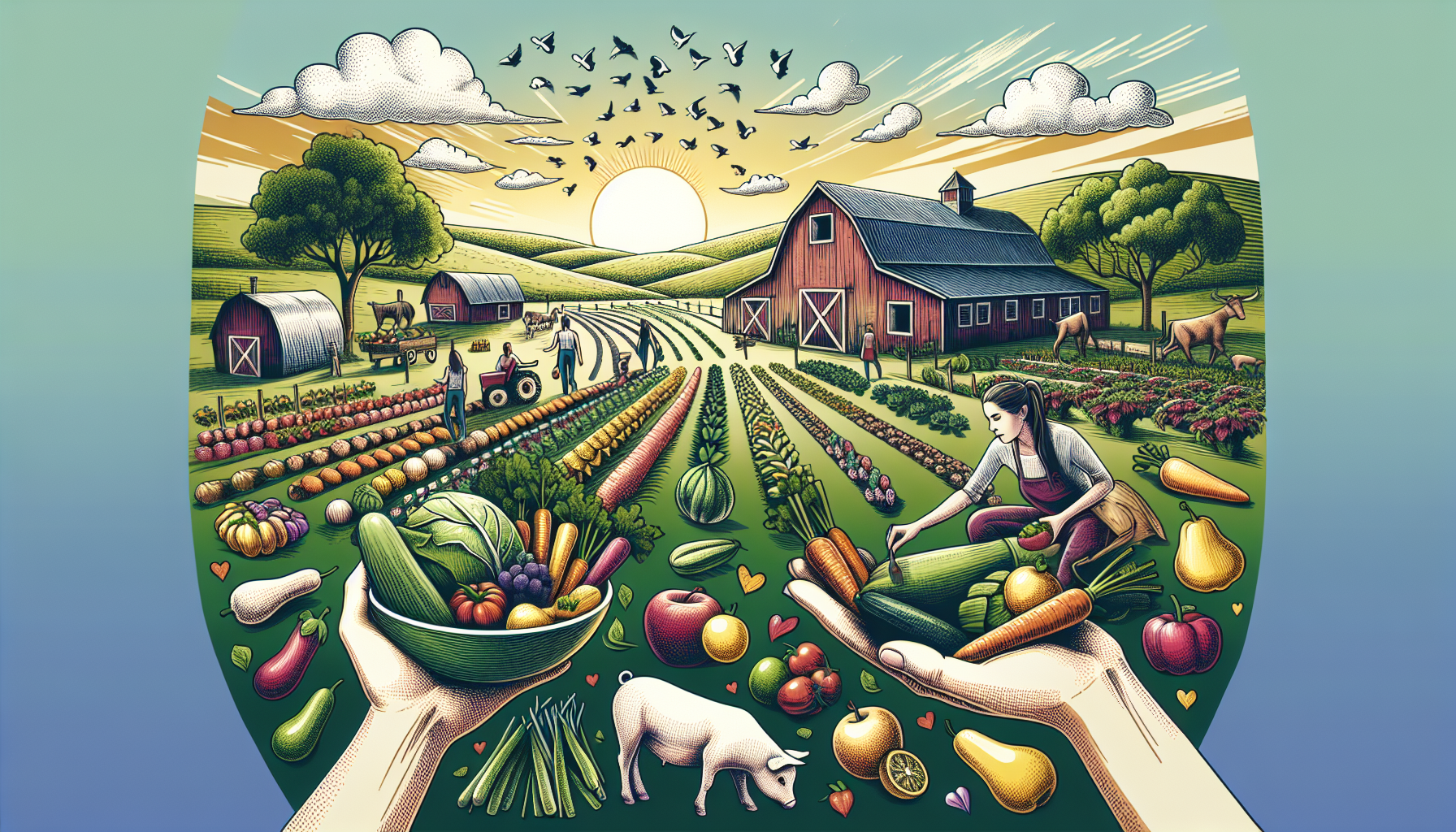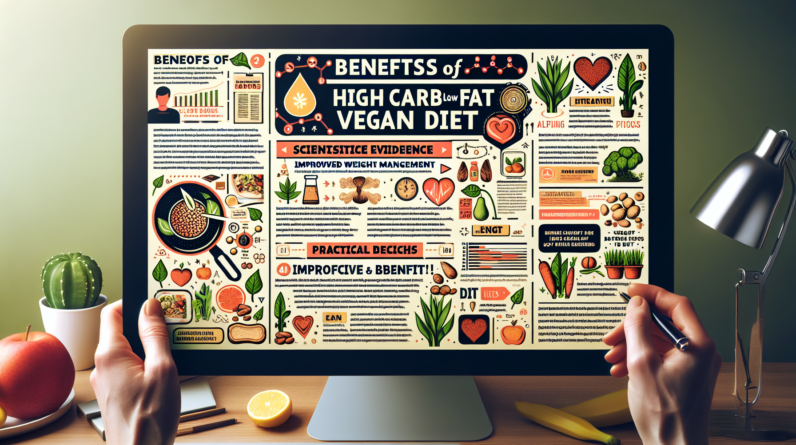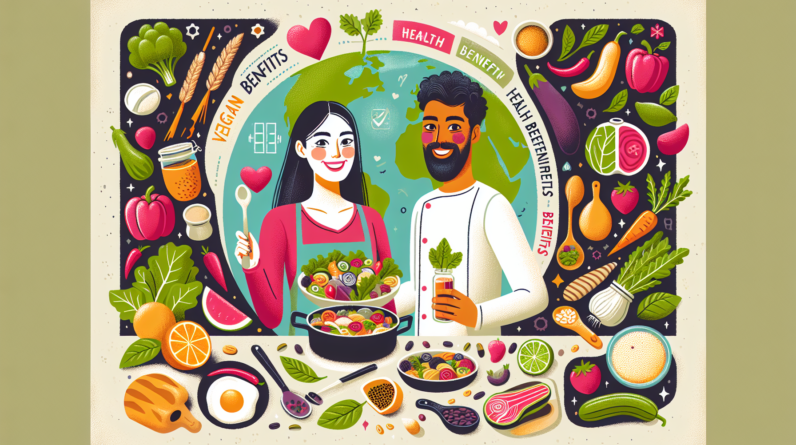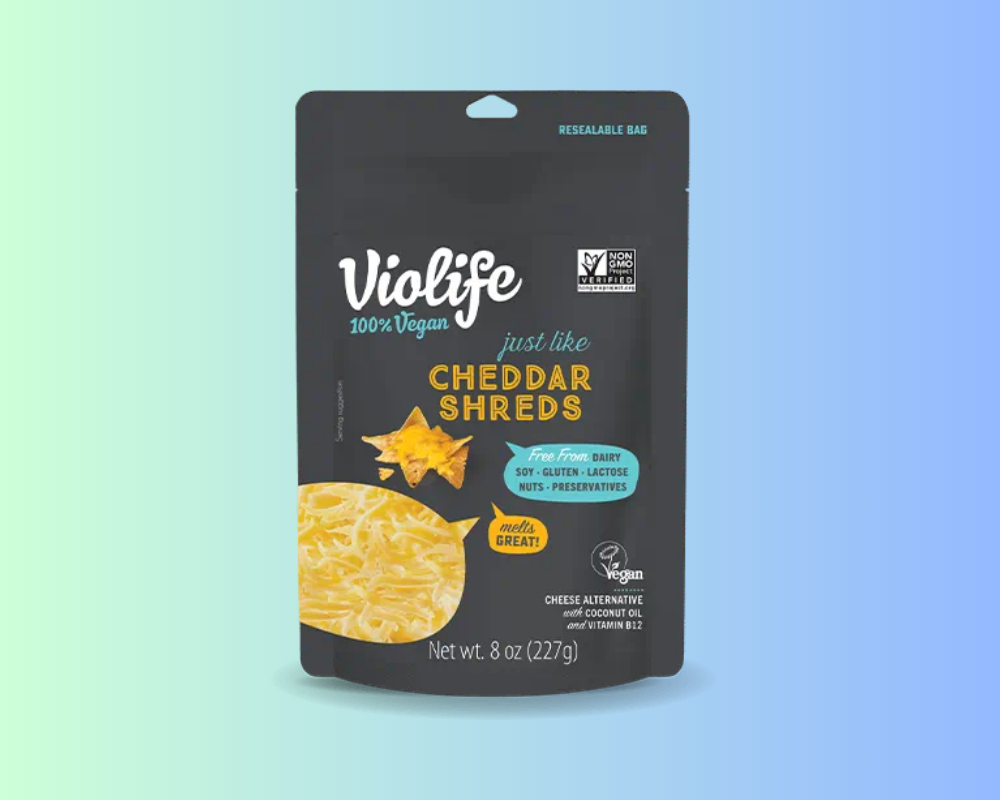So, you’re curious about the Vegan lifestyle? Wonder no more! In a nutshell, embracing a vegan lifestyle means adopting a way of living that seeks to minimize harm to animals. It’s not just about what you eat, but also about the choices you make in everyday life – from the clothes you wear to the products you use. By following a vegan lifestyle, you’re showing compassion towards animals, promoting a healthier environment, and contributing towards a more sustainable future. Let’s explore the multifaceted world of veganism together!

Table of Contents
Definition of Vegan Lifestyle
What is veganism?
Veganism refers to a way of living that aims to exclude all forms of animal exploitation and cruelty, particularly in one’s diet. It is a lifestyle choice that extends beyond just dietary preferences and encompasses ethics, environmental sustainability, and animal rights activism. At its core, veganism is a commitment to promoting compassion towards all living beings and making conscious choices to minimize harm to animals.
What does a vegan lifestyle entail?
Embracing a vegan lifestyle means adopting a plant-based diet and avoiding the consumption of animal products, including meat, poultry, fish, dairy, eggs, honey, and other animal-derived ingredients. It also involves a conscious effort to eliminate the use of animal products in everyday life, such as in clothing, cosmetics, and household items. Additionally, vegans strive to support sustainable agricultural practices and advocate for the ethical treatment of animals through activism and education.
Ethics of veganism
Ethics play a fundamental role in veganism. Vegan individuals believe in the inherent value and rights of animals and reject the idea that they should be treated as mere commodities for human use. They view the exploitation of animals for food, clothing, entertainment, or any other purpose as morally wrong. By adopting a vegan lifestyle, individuals align their actions with their ethical beliefs and contribute to a more compassionate and fair society for all beings.
Key Principles of Vegan Lifestyle
Plant-based diet
A plant-based diet forms the foundation of a vegan lifestyle. It involves consuming predominantly whole and minimally processed plant foods such as fruits, vegetables, legumes, grains, nuts, and seeds. Such a diet is rich in fiber, vitamins, minerals, and antioxidants, providing ample nutrition to support overall health and well-being. Plant-based diets have been associated with numerous health benefits, including reduced risk of chronic diseases like heart disease, type 2 diabetes, and certain types of cancer.
Avoidance of animal products
One of the fundamental principles of veganism is the complete avoidance of animal products. This includes not only meat and fish but also dairy, eggs, and honey. By excluding these products from their diet, vegans aim to eliminate the demand for animal exploitation in the food industry. This conscious choice promotes a more sustainable and ethical food system, reducing undue harm to animals and positively impacting the environment.
Environmental sustainability
Veganism recognizes the significant impact animal agriculture has on the environment. Livestock farming, particularly intensive factory farming, contributes to deforestation, pollution, and the emission of greenhouse gases. By choosing a vegan lifestyle, individuals actively participate in reducing their carbon footprint. Plant-based diets have been found to have a significantly lower environmental impact, requiring fewer natural resources like land, water, and energy. These sustainable choices help preserve biodiversity, conserve water resources, and mitigate climate change.
Animal rights activism
Veganism goes beyond personal dietary choices and encourages individuals to actively advocate for animal rights. This can take the form of supporting animal welfare organizations, engaging in peaceful protests against animal exploitation, and educating others about the ethical implications of using animals for human benefit. Vegan activists work towards creating a compassionate society that recognizes and respects the inherent rights and value of all beings.
Health benefits
Numerous studies have shown that a well-planned vegan diet can provide all the necessary nutrients for optimal health. Plant-based diets are naturally low in saturated fat and cholesterol while being rich in fiber, vitamins, minerals, and antioxidants. This combination offers various health benefits, including lower risk of heart disease, improved weight management, reduced inflammation, and enhanced digestion. Moreover, vegan diets can be tailored to meet specific nutritional needs, such as during pregnancy or for athletes, with careful planning and supervision.
Dietary Aspects of Vegan Lifestyle
Plant-based food choices
Central to a vegan lifestyle is the emphasis on plant-based food choices. Fruits, vegetables, whole grains, legumes, nuts, and seeds form the core of a nutritious vegan diet. These foods provide an abundance of essential nutrients, including vitamins, minerals, and fiber. Exploring and incorporating a wide variety of plant-based options ensures a diverse and well-rounded diet that supports overall health and vitality.
Nutritional considerations
When Transitioning to a vegan lifestyle, it is important to be mindful of certain key nutrients that may require intentional attention. These include vitamin B12, iron, calcium, omega-3 fatty acids, and vitamin D. While some of these nutrients can be obtained from fortified plant-based foods or supplements, others can be found naturally in vegan sources. Incorporating a well-balanced and varied diet that includes foods like fortified plant milk, legumes, leafy greens, nuts, and seeds can help meet these nutritional needs.
Protein sources for vegans
Protein is an essential macronutrient for growth, repair, and maintenance of body tissues. Contrary to common misconceptions, there are plenty of protein-rich plant-based sources available for vegans. Legumes like beans, lentils, and chickpeas, as well as whole grains like quinoa and brown rice, provide substantial amounts of protein. Additionally, tofu, tempeh, seitan, and plant-based protein powders are excellent options to incorporate into a vegan diet. By combining different protein sources throughout the day, vegans can easily meet their protein requirements.
Balancing essential nutrients
Adopting a vegan lifestyle requires mindful consideration of balancing essential nutrients to ensure optimal health. Including a variety of fruits, vegetables, whole grains, legumes, nuts, and seeds in meals and snacks can help provide a diverse range of vitamins, minerals, and phytonutrients. Careful meal planning and consulting with a healthcare professional or registered dietitian can help address individual nutrient requirements and ensure a well-rounded and balanced vegan diet.
Benefits and challenges of vegan diets
Vegan diets offer numerous health benefits, including weight management, lowered risk of chronic diseases, improved digestion, and increased nutrient intake. By consuming whole, plant-based foods, vegans naturally consume more fiber, antioxidants, and other beneficial plant compounds. However, it is essential to note that a vegan diet, like any other diet, must be planned thoughtfully to ensure all nutritional needs are met. It is advised to monitor nutrient intake, especially for key nutrients such as vitamin B12 and omega-3 fatty acids, and seek guidance if any concerns arise.
Animal Product Avoidance
Eliminating meat
One of the initial steps in adopting a vegan lifestyle is eliminating meat from your diet. This includes all forms of animal flesh, such as poultry, beef, pork, and fish. Cutting out meat means reducing the demand for intensive animal farming, which contributes to environmental degradation and animal cruelty. With the availability of tasty and nutritious plant-based alternatives, transitioning away from meat can be both health-conscious and sustainable.
Avoiding dairy and eggs
In a vegan lifestyle, the avoidance of dairy products and eggs is essential. Dairy products such as milk, cheese, yogurt, and butter are derived from animals and involve processes that exploit and harm animals. Eggs, too, are derived from hens kept in confined spaces and often involve cruel practices. Embracing plant-based alternatives like almond milk, soy cheese, coconut yogurt, and flaxseed eggs offer practical and compassionate substitutes.
Substitutes for animal-based products
Vegans have access to an ever-expanding range of plant-based alternatives that mimic the taste and texture of animal-based products. From plant-based meats and cheeses to dairy-free ice cream and egg replacers, these alternatives cater to a diverse range of tastes and preferences. These substitutes allow individuals to enjoy familiar flavors while still adhering to their values and dietary choices.
Reading food labels
Reading food labels carefully is an essential practice for vegans. Many food products contain hidden animal-derived ingredients that may not be immediately recognizable. Familiarizing yourself with common animal-derived ingredients, such as gelatin, whey, or casein, allows you to make informed choices about the products you purchase. Additionally, looking for vegan certifications or labels, like the Vegan Society’s sunflower logo, can help identify products that meet vegan standards.
Hidden animal ingredients
It is important to be aware of common hidden animal ingredients that may be present in various food products or even non-food items. Some examples include animal-derived additives such as carmine (red food coloring), shellac (used in candy coatings), or lanolin (found in moisturizers and lip balms). Educating oneself and reading product labels diligently helps ensure that no animal-derived ingredients or by-products are unknowingly consumed or used.

Environmental Impact
Reducing greenhouse gas emissions
Animal agriculture is a significant contributor to greenhouse gas emissions, including carbon dioxide, methane, and nitrous oxide. By choosing a vegan lifestyle, individuals directly reduce their carbon footprint and contribute to combating climate change. Plant-based diets require fewer resources and emit fewer greenhouse gases compared to meat and dairy-intensive diets, making veganism an effective way to mitigate climate change and its adverse effects.
Conserving water resources
Animal agriculture is a water-intensive industry, requiring vast amounts of water for livestock rearing, feed production, and processing. Choosing a vegan lifestyle significantly conserves water resources. Plant-based diets use a fraction of the water footprint compared to animal-based diets, as the production of fruits, vegetables, grains, and legumes requires considerably less water. By opting for plant-based alternatives, individuals can make a positive impact on global water conservation efforts.
Preserving biodiversity
Animal agriculture is a leading cause of habitat destruction and species extinction. Livestock farming contributes to deforestation, as large areas of forests are cleared to create space for pastures and feed crops. Embracing a vegan lifestyle helps preserve biodiversity by reducing the demand for animal products and the associated land-use impacts. By allowing ecosystems to thrive, veganism contributes to the protection of a wide variety of plant and animal species.
Mitigating deforestation
Deforestation is a pressing issue that threatens both wildlife habitats and the health of our planet. A significant portion of deforestation is driven by the expansion of livestock production and the need for feed crops. By choosing plant-based alternatives, we reduce the demand for animal products and, consequently, the need for deforestation. Veganism supports sustainable land use practices and contributes to mitigating deforestation, protecting vital ecosystems and the planet as a whole.
Sustainable agriculture practices
Veganism encourages the adoption of sustainable agricultural practices. Plant-based diets rely on organic farming methods, crop rotation, and agroforestry systems, reducing the need for synthetic pesticides and fertilizers. By opting for plant-based foods, individuals indirectly support sustainable agricultural practices that minimize soil erosion, water pollution, and overall environmental degradation. Sustainable farming practices promote soil fertility, preserve biodiversity, and contribute to long-term ecological balance.
Ethical Considerations
Animal cruelty in industries
One of the primary ethical considerations of veganism is the recognition and opposition to the inherent animal cruelty present in various industries. In the meat, dairy, and egg industries, animals are often subjected to confinement, overcrowding, mutilation, and harsh living conditions. By opting for a vegan lifestyle, individuals take a stand against these forms of cruelty and refuse to contribute to the suffering of animals for human consumption.
Exploitation of animals
Veganism addresses the broader issue of animal exploitation beyond just the food industry. Animals are used in various sectors, such as clothing, cosmetics, entertainment, and experimentation. Vegans consciously avoid supporting these industries by opting for cruelty-free alternatives, such as vegan clothing, cosmetics not tested on animals, and avoiding activities that involve animal exploitation. By advocating for ethical practices, vegans aim to create a just and compassionate society that respects the rights and well-being of all living beings.
Promoting compassion towards animals
Central to the vegan lifestyle is the promotion of compassion towards animals. Vegans recognize the sentience and inherent value of animals, believing that they should be treated with kindness and respect. This compassion extends to all animals, regardless of species, size, or their perceived usefulness to humans. By embracing a vegan lifestyle, individuals actively express their empathy and contribute to building a more compassionate world for all living beings.
Advocacy for animal rights
Veganism encourages activism and advocacy for animal rights. Vegan individuals often engage in peaceful protests, letter-writing campaigns, and public outreach to raise awareness and effect positive change. They may support animal welfare organizations, volunteer at animal sanctuaries, or participate in educational initiatives. By amplifying the voices of the voiceless and advocating for animal rights, vegans play a crucial role in creating a society that champions justice and compassion for all beings.
Supporting vegan companies and products
As veganism gains momentum, an increasing number of companies are producing vegan-friendly products. By actively seeking out and supporting these ethical businesses, vegans contribute to the growth of a cruelty-free market. These companies prioritize sustainability, animal welfare, and the production of vegan alternatives to mainstream products. By directing their purchasing power towards vegan products, individuals actively vote for a more compassionate and sustainable economy.
Health Benefits of Vegan Lifestyle
Lower risk of chronic diseases
Studies have consistently shown that adopting a vegan lifestyle can significantly reduce the risk of chronic diseases. Plant-based diets, rich in fruits, vegetables, whole grains, and legumes, provide an abundance of fiber, antioxidants, and essential nutrients. These dietary patterns have been associated with lower rates of heart disease, high blood pressure, type 2 diabetes, obesity, and certain types of cancer. By choosing a vegan lifestyle, individuals proactively prioritize their long-term health and well-being.
Weight management
Vegan diets, when well-planned, can contribute to effective weight management. Plant-based foods are generally lower in calorie density compared to animal products, while also being high in fiber, which promotes satiety and aids in weight management. By incorporating a variety of nutrient-dense plant foods, individuals can achieve and maintain a healthy weight while enjoying a wide range of flavors and textures.
Increased nutrient intake
A balanced vegan diet can provide individuals with increased nutrient intake compared to traditional omnivorous diets. Plant-based diets naturally contain higher amounts of fiber, vitamins, minerals, and antioxidants, which contribute to overall health and vitality. By consuming a diverse array of fruits, vegetables, whole grains, legumes, nuts, and seeds, vegans can meet and exceed their daily nutrient requirements, supporting optimal bodily function and well-being.
Improved digestion
Many individuals experience improved digestion after transitioning to a vegan lifestyle. Whole plant foods are rich in fiber, which aids in maintaining a healthy digestive system. The fiber content promotes regular bowel movements, prevents constipation, and supports gut health. Moreover, plant-based diets are generally lower in saturated fats and cholesterol, which can contribute to better gastrointestinal health and a reduced risk of digestive disorders.
Reduced risk of foodborne illnesses
Consuming animal products is associated with a higher risk of foodborne illnesses caused by bacteria such as Salmonella, E. coli, and Campylobacter. These bacteria can contaminate animal products during production, processing, or handling. By eliminating meat, poultry, and seafood from their diet, vegans significantly reduce the risk of encountering such foodborne pathogens. Prioritizing hygiene practices during food preparation further enhances the safety of vegan meals.
Challenges and Solutions
Social hurdles
Transitioning to a vegan lifestyle can present challenges, particularly in social settings where non-vegan options are the norm. However, there are numerous ways to navigate social hurdles successfully. Communicating your dietary choices in a friendly and informative manner, bringing your own plant-based dishes to gatherings, and suggesting vegan-friendly restaurants for group outings can all help create understanding and inclusive environments. Building supportive networks of like-minded individuals, participating in vegan communities, and seeking out online resources can also provide valuable guidance and encouragement during challenging social situations.
Meeting nutritional needs
Meeting nutritional needs is an essential consideration when adopting a vegan lifestyle. However, with proper planning and a well-rounded diet, it is entirely possible to obtain all the necessary nutrients from plant-based sources. Relying on a diverse range of fruits, vegetables, whole grains, legumes, nuts, and seeds helps ensure an adequate intake of vitamins, minerals, protein, and healthy fats. It may be beneficial to consult with a registered dietitian or healthcare professional to address individual nutrient requirements and ensure a nutritionally balanced vegan diet.
Finding vegan-friendly options
Finding vegan-friendly options is becoming increasingly accessible as veganism gains popularity. Many restaurants now offer plant-based dishes, and several food companies are developing vegan alternatives to common animal-based products. By researching local vegan-friendly establishments, exploring international cuisines that traditionally emphasize plant-based meals, and experimenting with cooking at home, individuals can easily find diverse and delicious vegan options that cater to their taste preferences.
Overcoming cravings
Cravings for familiar non-vegan foods may arise during the transition to a vegan lifestyle. These cravings are normal and can be addressed by seeking out vegan alternatives that replicate the flavors and textures of the desired non-vegan foods. Nowadays, there are plant-based versions of nearly everything, from burgers and sausages to ice cream and cheese. By exploring these alternatives and experimenting with new recipes, individuals can satisfy their cravings while staying true to their vegan values.
Supportive networks and resources
Building supportive networks and utilizing available resources can significantly aid individuals on their journey towards a vegan lifestyle. Engaging with like-minded individuals in vegan communities, participating in online forums and social media groups, and attending vegan gatherings or events can provide valuable support, advice, and inspiration. Additionally, there are numerous books, documentaries, podcasts, and websites advocating for veganism, offering practical tips, recipes, and resources to help individuals navigate their vegan journey successfully.
Misconceptions about Vegan Lifestyle
Lack of protein and essential nutrients
One common misconception about the vegan lifestyle is the belief that it is challenging to obtain adequate protein and essential nutrients solely from plant-based sources. However, with proper planning, a vegan diet can easily meet all nutrient requirements. Plant-based protein sources like legumes, tofu, tempeh, seitan, and plant-based protein powders can provide ample protein. Additionally, careful food choices and supplementation when necessary can ensure sufficient intake of essential nutrients like vitamin B12, iron, calcium, omega-3 fatty acids, and vitamin D.
Difficulty in getting enough iron
Iron is an essential mineral involved in various bodily functions, including oxygen transport and red blood cell production. Contrary to popular belief, obtaining enough iron on a vegan diet is entirely feasible. Plant-based sources of iron include legumes, leafy greens, tofu, tempeh, quinoa, fortified cereals, and nuts and seeds. Consuming vitamin C-rich foods alongside iron-rich foods enhances iron absorption. It is worth emphasizing that iron needs can vary based on age, sex, and individual health, and consulting with a healthcare professional or registered dietitian can help address any concerns regarding iron intake.
Inadequate calcium intake
Calcium is crucial for bone health, nerve function, and muscle contraction. While dairy products are often associated with calcium, vegan individuals have plenty of plant-based calcium sources available to them. Foods such as tofu (made with calcium salts), leafy greens (kale, bok choy, collard greens), fortified plant-based milk, calcium-set soy products, and fortified orange juice can provide adequate calcium intake. Ensuring sufficient vitamin D levels, either through sun exposure or supplementation, aids in calcium absorption and utilization.
Risk of nutrient deficiencies
It is a common misconception that a vegan lifestyle automatically leads to nutrient deficiencies. Though careful consideration must be given to certain nutrients, a well-planned vegan diet can provide all the necessary nutrients for optimal health. Regular consumption of a wide variety of plant-based foods, along with mindful nutrient planning and potential supplementation, helps individuals meet their nutritional needs. Consulting a registered dietitian or healthcare professional can provide personalized guidance and support in addressing any concerns regarding nutrient deficiencies.
Vegan diets for children and pregnant women
Another misconception is that vegan diets are not suitable for children and pregnant women. It is essential to note that vegan diets can provide adequate nutrition during all life stages with proper planning and monitoring. For children, ensuring sufficient intake of key nutrients like protein, calcium, iron, vitamin D, and vitamin B12 is crucial. During pregnancy, particular attention should be given to nutrients such as iron, calcium, iodine, vitamin B12, omega-3 fatty acids, and folate. Consulting with healthcare professionals and registered dietitians can help ensure proper nutrient intake and support optimal health for both children and pregnant individuals on a vegan diet.
Conclusion
Embracing a vegan lifestyle signifies a compassionate and sustainable way of living that encompasses values of empathy towards animals, environmental consciousness, and personal health. By adopting a plant-based diet and avoiding the consumption of animal products, individuals contribute to the reduction of animal exploitation, environmental degradation, and the risk of chronic diseases. Veganism is not just a personal choice but a powerful way to make a positive impact on the world. Continuous learning, growth, and awareness are essential as individuals navigate their journey towards a more compassionate, sustainable, and fulfilling lifestyle. Every individual choice made in favor of veganism is a step towards a better future for animals, personal health, and the planet.






